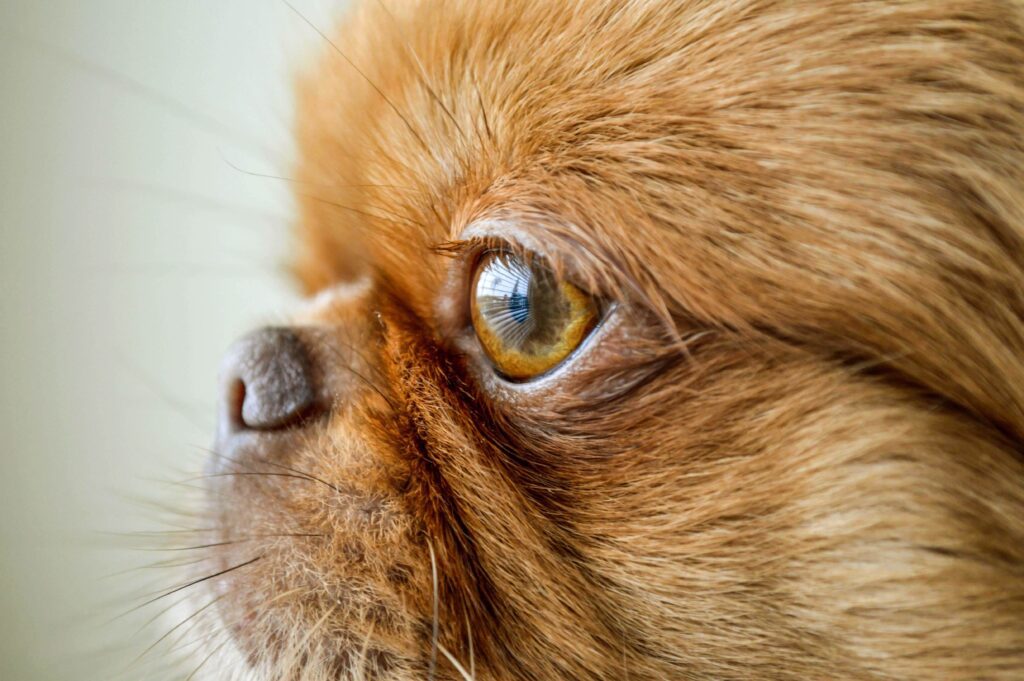Introduction
Have you ever noticed your puppy’s eye looking swollen or irritated? It’s a sight that can make any pet parent anxious. Eye problems in puppies can range from something as minor as an irritant to a serious underlying health condition. Being aware of the causes and knowing how to respond promptly can make all the difference for your furry friend.
Common Causes of Swollen Eyes in Puppies
Allergies
Puppies, just like humans, can fall victim to allergies. Environmental allergens such as pollen, mold, or dust are common culprits. Food allergies, while less frequent, can also lead to watery, swollen eyes. How do you know if it’s allergies? Look out for excessive blinking, watery discharge, or sneezing.
Minimizing exposure to allergens and consulting a vet for antihistamine options can bring relief. You can learn more about allergy management from the American Veterinary Medical Association (AVMA).
Injuries
Puppies are adventurous by nature, which sometimes gets them into trouble. A playful scuffle, running into furniture, or even a brush with a twig outdoors could lead to minor scratches or trauma. If you notice swelling or if your pup keeps pawing at their eye, inspect the area for signs of debris or redness.
For a detailed guide on treating minor injuries, check out PetMD.
Infections
Bacterial and viral infections are common in young puppies, primarily because their immune systems are still developing. Eye infections, like those caused by bacteria in tear ducts, can cause swelling, redness, and discharge. Viral conditions, such as canine distemper, may also lead to eye-related symptoms.
Visit VCA Animal Hospitals for advice on spotting and addressing infections in puppies.
Conjunctivitis (Pink Eye)
Conjunctivitis, or pink eye, is a condition where the lining of the eyelid becomes inflamed. It could stem from allergens, bacteria, or even environmental irritants. Symptoms include swelling, redness, and yellow or green discharge.
Immediate treatment is necessary to prevent complications. For more details, see ASPCA.
Glaucoma
This is a serious condition that occurs when pressure within the eye increases, often causing significant swelling and discomfort. Left untreated, glaucoma can lead to permanent vision loss. Early warning signs include cloudiness, bulging eyes, or changes in your puppy’s behavior.
The American College of Veterinary Ophthalmologists (ACVO) offers excellent resources for recognizing and managing glaucoma in pets.
Eye Irritants
Everyday substances like smoke, household cleaners, or even wind-blown dust can irritate a puppy’s sensitive eyes. While swelling caused by irritants may subside on its own, it’s always better to prevent exposure whenever possible.
Learn how to create a safe environment for your pet at the Humane Society.
Rare but Serious Causes
Tumors and Growths
Though uncommon, tumors or cysts around the eye can cause noticeable swelling. Immediate veterinary attention is crucial to identify whether the growth is benign or malignant.
Parasites and Tick Bites
Parasites like ticks can bite near the eye area, causing localized swelling. Worse, they may introduce infections. Preventative treatments, such as anti-tick medications, can go a long way.
For parasite prevention strategies, visit CDC Pets and Parasites.
Autoimmune Disorders
Rare autoimmune conditions can cause inflammation in the eye. These disorders often require long-term management under a veterinarian’s guidance, including specialized medication.
Recognizing the Symptoms
Wondering when to take action? Look out for these signs:
- Persistent redness or swelling
- Watery discharge or pus
- Sensitivity to light
- Excessive pawing at the eye
- Behavioral changes like lethargy
If these symptoms persist, don’t wait—consult a vet immediately. The AKC’s guide to dog health is a great resource for understanding more about these symptoms.
How to Treat a Swollen Eye at Home
Before rushing to the vet, you can try these first-aid measures:
- Gently wipe the eye area with a clean, damp cloth.
- Apply a cold compress for a few minutes to reduce swelling.
- Prevent your puppy from scratching the eye by using an Elizabethan collar.
However, avoid using human eye drops unless prescribed by a vet. For more comprehensive guidance, see Vetstreet.
When to Visit a Veterinarian
If symptoms persist beyond 24 hours or worsen, it’s time to visit the vet. Diagnostic tests, like eye pressure measurements or tear tests, may be required to determine the cause. Treatment could involve antibiotics, eye drops, or even surgery in severe cases.
The AVMA provides insights into what to expect during a vet visit.
Prevention Tips
Prevention is always better than cure. Here’s how to minimize the risk of eye problems in your puppy:
- Regularly clean around their eyes with a soft cloth.
- Avoid using strong chemicals or air fresheners in the house.
- Puppy-proof your home to remove sharp objects.
- Provide tick and flea prevention treatments.
More prevention tips are available at Petfinder.
Conclusion
Your puppy relies on you to notice when something isn’t right. A swollen eye can range from a mild irritant to a sign of a severe issue. Quick action—whether through home care or a trip to the vet—ensures their comfort and health.
FAQs
- Why does my puppy’s swollen eye keep watering?
Swelling and watering often indicate irritation, allergies, or an infection. Consult your vet for a precise diagnosis. - Can I use human eye drops on my puppy?
No, human eye drops can be harmful unless specifically prescribed by a veterinarian. - How can I tell if my puppy’s eye problem is serious?
Severe swelling, discoloration, or unusual behavior signals the need for immediate veterinary care. - What foods can cause allergies leading to swollen eyes?
Common allergens include chicken, beef, and dairy. Consult your vet about an elimination diet to pinpoint the cause. - Can swollen eyes in puppies heal on their own?
Some mild irritations may improve naturally, but a vet should evaluate persistent or worsening symptoms.



